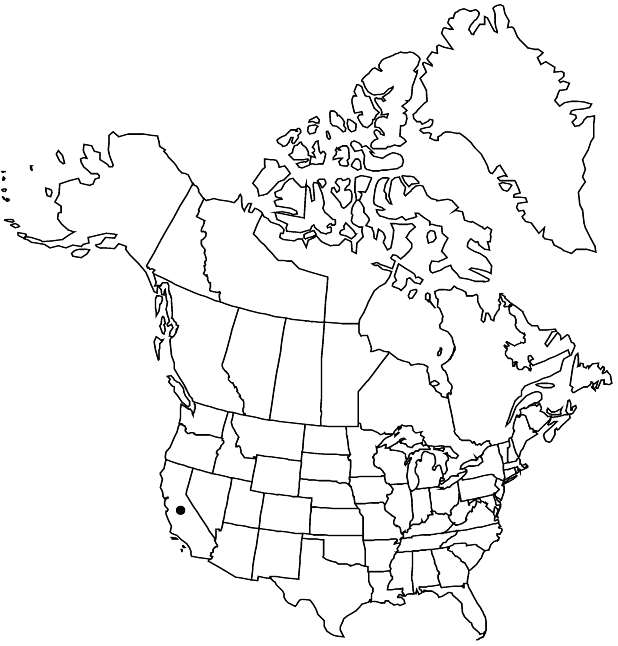Arctostaphylos osoensis
Four Seasons 9(2): 45. 1992 ,.
Shrubs, erect or mound-forming, 1–4 m; burl absent; bark of older stems persistent, gray, shredded, sometimes red, smooth; twigs sparsely short-hairy. Leaves: petiole to 2 mm; blade dark green, ± shiny, ovate to orbiculate-ovate, 1.5–3 × 1.5–2.5 cm, base deeply lobed, (clasping), margins entire, plane, surfaces smooth, sparsely short-hairy or glabrous. Inflorescences racemes, simple or 1-branched; immature inflorescence pendent, (branches compact, framed by bracts), axis 0.5–1 cm, 1+ mm diam., sparsely short-hairy; bracts not appressed, leaflike, lanceolate to ovate, 4–8 mm, apex acute, surfaces glabrous. Pedicels 8–9 mm, glabrous. Flowers: corolla white, urceolate; ovary glabrous. Fruits depressed-globose, 5–8 mm diam., glabrous. Stones distinct. 2n = 26.
Phenology: Flowering winter–early spring.
Habitat: Maritime chaparral on volcanic uplands
Elevation: 0-200 m
Discussion
Of conservation concern.
Arctostaphylos osoensis is found in the volcanic hills east of Morro Bay, San Luis Obispo County.
Selected References
None.
